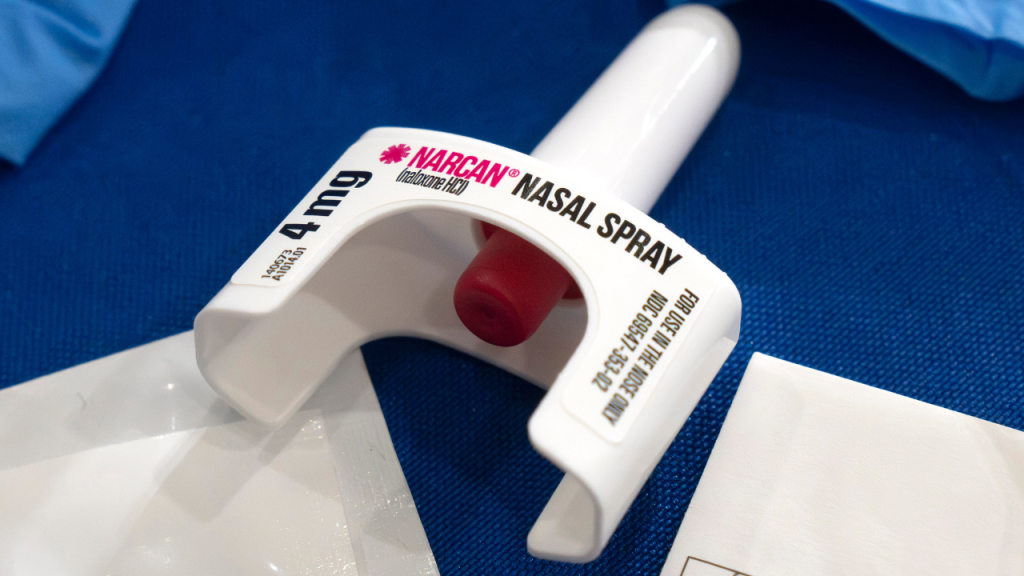The Pinellas Suncoast Transit Authority in Florida has taken the initiative to install Narcan kits at its four bus terminals and train its employees on how to use the nasal spray to reverse opioid overdoses. This move makes them the first transit agency in the state to offer such a Narcan training program. The agency recognized the need for equipping its staff with the necessary tools to respond to emergencies involving unresponsive passengers due to preexisting medical conditions or other reasons. Pinellas County has seen an uptick in deaths caused by accidental opioid overdoses since 2018, prompting the initiative.
Dan Zsido, a retired lieutenant from the Pinellas County Sheriff’s Office with extensive experience in narcotics investigations, is working to train hundreds of PSTA employees on how to effectively use the Narcan kits. He emphasized the critical impact that a small, simple device like Narcan can have in saving lives in overdose situations. Narcan nasal spray can reverse the effects of opioid overdoses caused by various substances such as heroin, prescription medications like oxycodone and hydrocodone, as well as potent street drugs like fentanyl. The installation of Narcan kits ahead of International Overdose Awareness Day on Aug. 31 demonstrates PSTA’s commitment to addressing the opioid crisis.
The overarching goal for PSTA is not only to equip its staff with Narcan kits but also to educate the public about the availability of life-saving resources at the bus terminals in case of emergencies. The agency aims to set an example for other counties and potentially become a pilot program for similar initiatives across the state. With the ultimate objective of installing Narcan kits on all buses, PSTA is actively seeking to expand its life-saving efforts and save more lives within the community. The commitment to addressing opioid overdoses and providing training on the administration of Narcan underscores PSTA’s dedication to public safety and emergency preparedness.
As a response to the rise in deaths caused by accidental opioid overdoses in Pinellas County, the implementation of Narcan kits at PSTA bus terminals represents a proactive approach to tackling the opioid crisis at the local level. By recognizing the challenges faced by individuals struggling with opioid use disorder and ensuring that staff are equipped to respond effectively to emergencies, PSTA is taking concrete steps to address a pressing public health issue. Through the installation of Narcan kits and the training of employees, the agency is demonstrating its commitment to the well-being of both passengers and staff members.
The use of Narcan as a life-saving intervention in opioid overdose situations highlights the importance of timely and effective responses to emergencies. By providing Narcan training to its employees, PSTA is empowering its staff to act swiftly and decisively to potentially life-threatening situations. The decision to install Narcan kits at strategic locations within the agency’s facilities and to eventually expand the program to buses further emphasizes the commitment of PSTA to ensuring the safety and well-being of individuals within the community. By leveraging resources and expertise, PSTA is playing a vital role in supporting individuals affected by the opioid epidemic.
Overall, PSTA’s initiative to install Narcan kits, train employees, and raise awareness about the availability of life-saving resources at bus terminals underscores the agency’s commitment to public health and safety. By taking proactive measures to address the opioid crisis and provide essential training on the administration of Narcan, PSTA is positioning itself as a leader in responding to emergencies related to opioid overdoses. Through collaboration with law enforcement, healthcare professionals, and community partners, PSTA is contributing to a coordinated response to a complex public health challenge. As the first transit agency in Florida to offer Narcan training, PSTA is setting a positive example for other agencies to follow in addressing the opioid epidemic and saving lives within their communities.


